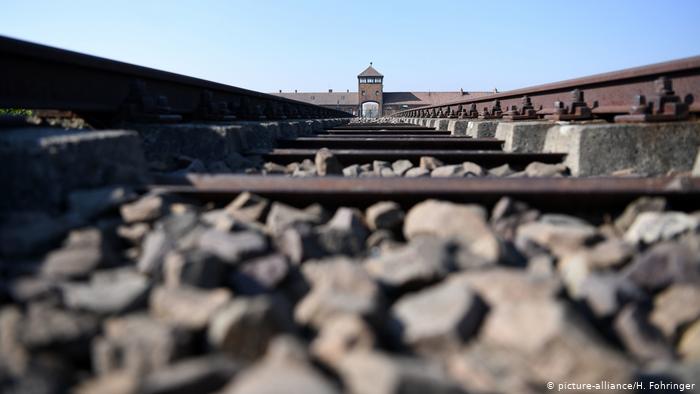
DW: Professor Brumlik, what went through your mind when you heard the story about the blogger and historian Marie Sophie Hingst, accused of lying about her alleged Jewish family of Holocaust victims?
Micha Brumlik: I thought it was very sad. I felt really sorry for Ms. Hingst, who contrived a family history. I wondered, of course, how such a thing could happen given the fact that the question of the Holocaust, its victims and its perpetrators, is a fundamental topic in Germany. And so I can imagine that a confused soul — Ms. Hingst is not the first such case — could turn things around and reinvent them for herself.
What do you think is behind it — audacious cynicism, a pathological craving for recognition or simple stupidity? You just expressed compassion….
Perhaps stupidity, or a lack of empathy and historical clear-sightedness — perhaps it is also something like an unconscious will not only to identify with the victims, but to belong to them.
You were formerly the director of the Fritz Bauer Institute in Frankfurt, a research and documentation center on the history and impact of the Holocaust. Would you say that this imposture is at the expense of Holocaust victims?
Not exactly. Among the few Holocaust victims that I still know, mostly older people, I would assume that they also find it rather sad. This is a dismal side-effect of the fact that this is a weighty subject that at least part of the reading public in Germany has preoccupied itself with for decades.
When an award-winning blogger like Marie Sophie Hingst, a trained historian, publicly takes sides with the victims, does she then exit the camp of the perpetrators? Does she elude collective responsibility?
Given her age, it can’t be about guilt or responsibility anyway. The question is whether this generation is prepared to take on political-historical responsibility. And I would say yes to that. Under such circumstances, Ms. Hingst did try to evade the collective responsibility that Germany’s citizens have. But I believe that the urge to be a victim was stronger than the impulse to face up to responsibility.
Even the archivists at Yad Vashem, Israel’s official memorial to the victims of the Holocaust, were duped by Marie Sophie Hingst. Are files checked less often or thoroughly when they speak of a societal trauma such as the persecution and murder of millions of people?
I’m not sure. I am not familiar with the verification process carried out at Yad Vashem. I would suspect that no one there even imagined that someone would carry out an act of imposture.
In Germany, one has the impression that anti-Semitism is on the rise. Just recently, Felix Klein, Germany‘s anti-Semitism commissioner, called on all Germans to wear a kippa as a sign of solidarity with Jews. Does behavior such as that of Ms. Hingst harm the cause of Jews?
I don’t think so. Incidentally, while we‘re on the subject, I would have expected Mr. Klein to have spoken more about the possibilities for state intervention instead of appealing to civil society that way. It takes care of itself anyway. I believe, for example, that part of compulsory schooling, part of education for all teachers in schools should include information about the history of Germany under National Socialism and the Holocaust during their studies.
So if there’s anything good about Marie Sophie Hingst’s case, it’s that it’ll serve as a kind of wake-up call?
We could say that. It leads us to think once again about how we should approach and deal with the Holocaust, considering that — as the winners of the Peace Prize of the German Book Trade Aleida and Jan Assmann have said — the communicative transmission of the history of the Holocaust will soon turn into a cultural transmission, when all survivors of the events will have passed away.





